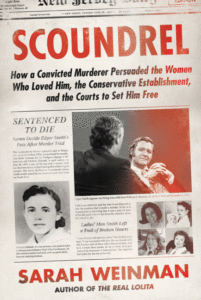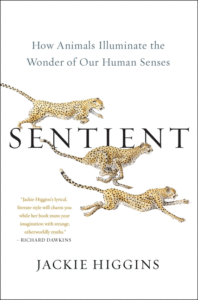
Julie Otsuka’s The Swimmers, Roddy Doyle’s Life Without Children, and Sarah Weinman’s Scoundrel all feature among the Best Reviewed Books of the Week.
1. The Swimmers by Julie Otsuka
(Knopf)
9 Rave • 1 Positive • 1 Mixed
Read an interview with Julie Otsuka here
“Brief quotes give the text the veneer of nonfiction, and keep the narrative at arm’s length, rather than pull you close as fiction often attempts to … We leave the pool in the novel’s second half, and are firmly anchored aboveground with Alice, diagnosed with dementia, and her unnamed daughter … Otsuka’s prose is powerfully subdued: She builds lists and litanies that appear unassuming, even quotidian, until the paragraph comes to an end, and you find yourself stunned by what she has managed … It’s in [the] dissonance that the novel’s halves begin to meaningfully cohere … The puzzling narrative structure makes a kind of poetic sense as myth … The Swimmers makes an archetypal story wholly personal … In a time of monotony and chaos, when death is as concrete as it is unimaginable, and when cracks can and do appear in the pool for no discernible reason, The Swimmers is an exquisite companion. Though it doesn’t answer the unanswerable, the novel’s quiet insistence resonates: that it is our perfectly ordinary proclivities that make us who we are.”
–Rachel Khong (The New York Times Book Review)
2. Life Without Children by Roddy Doyle
(Viking)
6 Rave • 5 Positive • 1 Mixed
“… a quietly devastating collection of short stories that brilliantly portrays the pervasive sense of hopelessness that immobilised us during the dog days of Covid … Lest he be accused of focusing too much on men and their sense of victimhood, the countervailing magnificence of his women is worth noting. Part of Doyle’s genius resides in a kind of bathetic amusement at the follies of his male characters and always it’s the stoical good sense of women that saves the day … Another of his great strengths is the ability to drop in those little epiphanies that resolve the tension and conflict of a story in a single significant moment … Doyle breaks our free fall into despair by emphasizing the redemptive power of humor, love and the kindness of strangers.”
–Bert Wright (The Sunday Times)
=3. City of Incurable Women by Maud Casey
(Bellvue Literary Press)
5 Rave • 2 Positive
“A haunted and haunting book, short, but densely packed with metaphor and meaning. Ghostly black-and-white photographs of the Salpêtrière Hospital in Paris and women treated for hysteria there in the 19th century, accompanied by case study notes and ‘photographic service’ cards recording the subjects’ symptoms, convey the impression that we are reading messages from the dead past. This is an illusion created by Casey’s skillful blend of fact and fiction. The case histories and service card texts are partly based on rough translations of primary sources, partly invented … Yet the novel is poetic rather than polemic, elegantly written and filled with resonant imagery … Casey crafts individual portraits and a collective monologue that show them as human beings with histories, desires, and, yes, bodies: their principal weapon in the battle to wrest some kind of recognition from the men who rule their lives … Despite its often somber tone, City of Incurable Women is in the end affirmative and inspiring, a powerful demonstration of Maud Casey’s artistry.”
–Wendy Smith (The Boston Globe)
=3. Manhunt by Gretchen Felker-Martin
(Tor Nightfire)
5 Rave • 2 Positive
“… masterful … an incredible book. I haven’t read a book this close to the bone in a long time. It’s an edge-of-your-seat, gripping account of a world overrun by TERFs as they seek to eradicate trans women … The novel is told in many strands, often producing a whiplash pacing that works best during battle … As grim as it sounds, it’s an incredibly acerbic and witty read, going down with equal parts tenderness and brutality … tackles difficult subjects with vision … The interplay of cis power and trans vulnerability is never drawn in stark shades, instead both are capable of great harm and subversive acts of kindness.”
–Grace Byron (Observer)
5. Black Cloud Rising by David Wright Faladé
(Grove)
5 Rave • 1 Positive
Read David Wright Faladé on the case for Civil War revisionism in film and literature here
“There’s nothing pulpy about David Wright Faladé’s Black Cloud Rising. It’s a Civil War novel based on the actual experiences of the African Brigade … Faladé’s book is so accessible and rousing, though, that you hope it becomes available as a mass-market paperback, in packaging that more clearly announces: This book is a straight-up page-turner … There are no braided points of view here, no too-pretty words, no splintered syntax. No leaden diagnoses of the human predicament belch on the smoky skyline. The nature of the American experiment is implicitly questioned but not burned to the ground … This is a classic war story told simply and well, its meanings not forced but allowed to bubble up on their own … This is in some senses Faladé’s first novel …There’s blood and sinew in the story he tells … It seems built out of pine, not mahogany, as if heeding the poet A.R. Ammons’s advice: ‘Sometimes the best piece of / wood is not right for what you have in mind.'”
–Dwight Garner (The New York Times)
**
1. Life Between the Tides by Adam Nicolson
(Farrar, Straus and Giroux)
9 Rave • 1 Positive
Read an excerpt from Life Between the Tides here
“Illuminating … [Nicolson] operates in a tradition pioneered by Annie Dillard and upheld by the likes of David Haskell—closely observing a discrete patch of earth (or sea) and taking it as his muse … Not that he’s a passive watcher. Nicolson engineers his own pools in a Scottish bay, ‘gardening the sea’ with crowbars and mortar, then evokes their tiny inhabitants in lovely detail. He’s fascinated by the adaptations that permit life in this ‘Darwinian laboratory’ … There’s brutality here, but also brilliance—anemones, despite literal brainlessness, adeptly size up their rivals—and astonishing tenderness … The notion of dredging big truths from small pools isn’t novel … But few writers have done it with Nicolson’s discursive erudition. He introduces a litany of scientists who have sought universality in tide pools, these accessible, self-contained aquariums … Nicolson’s at his best when he’s focused on his precious littoral world. Here, even rocks have stories.”
–Ben Goldfarb (The New York Times Book Review)

2. Scoundrel: How a Convicted Murderer Persuaded the Women Who Loved Him, the Conservative Establishment, and the Courts to Set Him Free by Sarah Weinman
(Ecco)
7 Rave • 3 Positive
“The narrative’s goal isn’t to grip readers using a what-happens-next approach…but rather to explore how and why things happened the way they did—and who helped him become one of the most famous convicted murderers of his time … But why did Buckley become so committed to Smith … Weinman’s answer is complex, of course, but might be boiled down to two major ideas: first, that Smith’s talent as a writer was impressive enough to win him friends and admirers and, second, that he was incredibly manipulative … Smith clearly was manipulative … Indeed, the excerpts of his letters that appear in the book were convincing enough to sow doubt in my own mind at first, and I found myself being disturbingly drawn to him and his writing. This is, perhaps, precisely why Weinman does so little editorializing … Scoundrel is very much a hard-boiled true-crime narrative, detailed and careful. But although Weinman writes that it’s Smith’s victims who animate the narrative of the book…it doesn’t quite read that way … Still, it’s clear that Weinman tried to breathe as much life into the women as she could, and the book certainly excels at being an in-depth exploration of how outside influence and support can affect the criminal justice system’s slow-moving cogs, as well as the narrative of a con artist who managed to hurt a great deal of people.”
–Ilana Masad (NPR)
3. The Duchess Countess: The Woman Who Scandalized Eighteenth-Century London by Catherine Ostler
(Atria Books)
6 Rave • 5 Positive • 1 Pan
Read an excerpt from The Duchess Countess here
“[A] skillful and highly entertaining biography … While it’s intriguing to speculate on modern interpretations of Chudleigh’s behavior, the real strength of the book is the author’s painstaking effort to corral all the facts in recounting a life that even her contemporaries found wildly improbable … The last years of Chudleigh’s life…are colorful but less interesting than the account of the trial, which Ostler carries off masterfully. Bridgerton fans take note: For sheer incident and drama, Chudleigh’s story rivals any episode of the popular Regency-era Netflix series. And it’s all true.”
–Claire McHugh (The Washington Post)

4. Sentient: How Animals Illuminate the Wonder of Our Human Senses by Jackie Higgins
(Atria)
5 Rave • 2 Positive
“Higgins highlights intriguing animals with remarkable sensory receptors that offer new perspectives on human senses, which, she explains, number far more than the traditional five … Each of these fascinating reveals, elucidated with scientific fluency and narrative verve, revolve around the central mystery of ‘how neural matter gives rise to sensation and sentience.’ Higgins’ in-depth tour of the senses recalibrates our sense of ourselves, other species, and the singular miracle of life.”
–Donna Seaman (Booklist)
5. The Founders: The Story of Paypal and the Entrepreneurs Who Shaped Silicon Valley by Jimmy Soni
(Simon & Schuster)
3 Rave • 5 Positive
“A gripping account of PayPal’s origins and a vivid portrait of the geeks and contrarians who made its meteoric rise possible. His richly reported narrative includes corporate intrigue, workplace hijinks, breakthrough innovation and first-class nerdiness … Conflict and turmoil permeate The Founders … Mr. Soni…keeps the story moving at a brisk pace and captures the quirks and whims of the people involved … Anyone looking for yet more tales about Mr. Musk won’t be disappointed … Captivating.”
–Matthew Rees (The Wall Street Journal)

